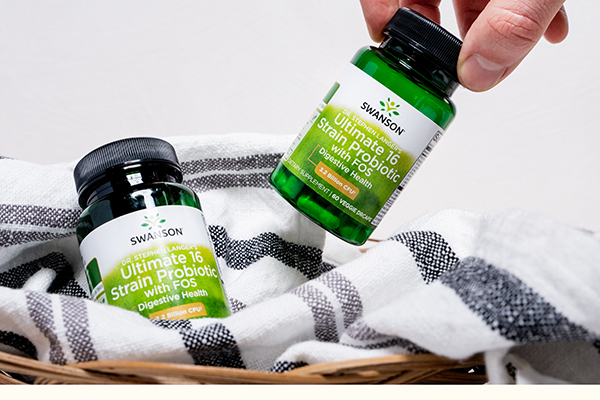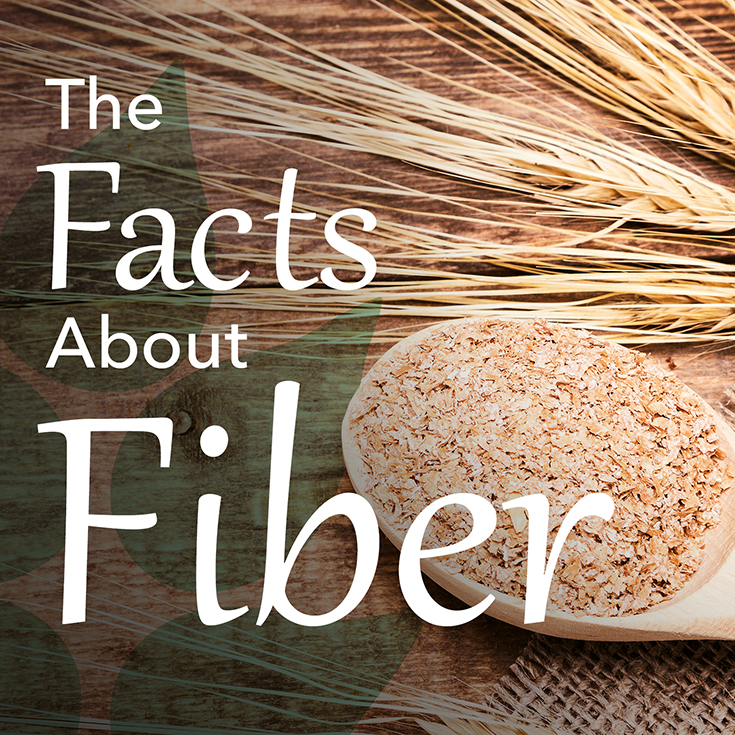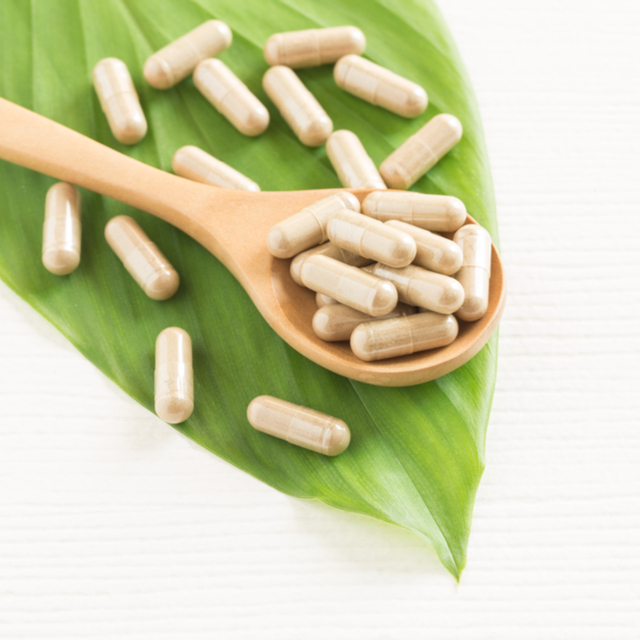Prebiotics vs. Probiotics vs. Postbiotics
Prebiotics vs. Probiotics vs. Postbiotics
Your gastrointestinal (GI) tract is an amazing system used by the body to glean nutrition and hydration from the foods and drinks we consume. It also serves as a major mode by which the body removes waste and impurities. What’s more, the GI tract is home to around 70% of your immune cells, making it a key player in the body’s overall defense strategy.1
To accomplish these important functions the GI tract relies on help from a vast array of gut microorganisms, including the “good” bacteria commonly referred to as probiotics. These probiotics help the digestive system break down and absorb nutrition and, along with postbiotics, lend a major helping hand to our body’s immune function. Prebiotics also play an important part by nourishing and promoting the proliferation of probiotics and postbiotics in the gut.
What are prebiotics? Are probiotics and postbiotics the same? To answer these questions and discover more about how these microorganisms work to enhance overall wellness, let’s consider each one individually.
Prebiotics
The easiest way to define prebiotics is to think of them as plant-based fiber material that nourishes the “good” bacteria in your gut. These fibers may include inulin, fructo-oligosaccharides (FOS) or galacto-oligosaccharides (GOS). Prebiotics can be found in many popular foods such as raw onions and raw asparagus, blueberries and apples or even nuts such as almonds and pistachios.2
You can also get the prebiotics your body needs to support a healthy gut microbiome in the form of prebiotic supplements, including delicious gummies.
Benefits
Prebiotics are an important part of a healthy diet and making sure you’re getting enough each day can go a long way toward reaching your health goals. Prebiotics provide the sustenance needed for a vibrant probiotic culture in the gut, so providing sufficient prebiotics can mean better digestion, increased comfort and all-around enhanced digestive health. And remember: prebiotics are only the first step in a pyramid of GI health, so you’ll want to be sure your digestive foundation is a strong one.
Probiotics
As mentioned above, probiotics can be thought of as “good” living bacteria and yeasts which aid the digestive process in the GI tract. These healthy microorganisms can be found in foods like yogurt or some cheeses, but also in pickles, sauerkraut and even sourdough bread.3
Some of the most common probiotic supplements used to bolster health and wellness are strains of Lactobacillus and Bifidobacterium. These strains are particularly well-represented in popular supplements and offer powerful health benefits typically without the need for refrigeration.
Benefits
Nobel laureate Eli Metchnikoff was the first to identify probiotics and their health benefits in the early 20th century. Since then, science has come to recognize the roles these organisms play in promoting digestive, mood and immune health, and some studies have even indicated that probiotic bacteria may benefit respiratory function as well.4
Probiotics support digestive health by helping to break down the foods we eat so that our bodies can better absorb the nutrients within them. One of the ways probiotics accomplish this is by releasing metabolites like lactic acid and short-chain fatty acids like acetic acid. They also lend a hand to promoting immune health by releasing substances called bacteriosins which can bolster the immune system’s defenses in the gut.4
Your system also benefits from probiotics as these helpful bacteria support the modulation of various immune cells such as mucosal and intestinal epithelial cells. This benefits the body’s innate and adaptive immune functions.5
Postbiotics
Are probiotics and postbiotics the same? While the names may sound similar, and although there is some overlap in the benefits both offer, these two can be distinguished in terms of sequence. Just as prebiotics formed the base of the pyramid we discussed above, probiotics form the next level, with postbiotics represented by the apex at the top.
In this sequence of digestion, prebiotics and probiotics leave behind certain beneficial substances in the GI tract. These nutrients are called postbiotics and may be comprised of amino acids, certain peptides and vitamins like K or members of the B family. Good food sources of postbiotics generally include fermented dishes like kimchi or kefir.6
Benefits
The postbiotic peptides and short-chain fatty acids produced by postbiotics can benefit overall digestive wellness as well as the immune system by promoting healthy bacterial balance within the gut and also by supporting intestinal integrity, particularly in the colon. Maintaining a healthy intestinal lining goes a long way toward bolstering your body’s immune defenses by providing a healthy barrier to help prevent toxins from entering the bloodstream.7
Do You Need Prebiotics, Probiotics and Postbiotics?
For optimal digestive health and a vibrant immune response, our bodies need the powerful boost we get from probiotics and even postbiotics. Likewise, in order to flourish and succeed in the body’s intestinal microbiome, these healthy microorganisms require the help and support of prebiotics.
When considered from this angle, it becomes clear that prebiotics, probiotics and postbiotics offer us a way to maintain healthy digestive and immune function that can help us feel more vibrant and even promote a lighter mood. As Mackenzie McCune, a registered dietitian, explains, “Gut bacteria help to increase nutrient absorption and ward off pathogens…” That sounds pretty important to our overall health!8
Supplementing can be very helpful to promoting your overall wellbeing, as getting sufficient amounts of prebiotics from modern diets may be challenging. Additionally, many factors may make maintaining bacterial balance difficult, so making sure your body has sufficient levels of active probiotics and postbiotics is always a good idea.
Can I take Probiotics and Postbiotics at the Same Time?
Yes, prebiotics, probiotics and postbiotics all work together to perform different, but complementary roles to help keep your digestive and immune systems functioning at their peak. That’s why certain combination formulas are so popular for those who want to support their overall wellness.
How to Determine Which is Best for You
As with any supplement, it’s best to first discuss with a health professional before beginning or adding to any health regimen. Once you’ve done so, choosing the best probiotic for you comes down to simply familiarizing yourself with the strains available on the market and their respective functions.
For example, a prebiotic formula featuring FOS is a great place to start, but if you’re looking for a combination formula that delivers both prebiotics and probiotics, perhaps you should consider a tasty gummy featuring both. It’s also possible to find supplements which cater to specific needs, such as an immune-supporting probiotic formula or even one designed specifically for seniors.
You can even find a postbiotic supplement formulated to support immune health, such as Swanson’s Postbiotic Immune Formula featuring EpiCor, a yeast fermentate clinically studied for its ability to promote the strengthening of mucus membranes, increase NK cell activity and boost circulating antioxidants in the body.
Whichever supplement you settle on, incorporating more prebiotics, probiotics and postbiotics into your diet and daily health plan is an excellent way to boost your wellness today while also investing in vibrant health for years to come.
You be well, now
Swanson
*These statements have not been evaluated by the Food and Drug Administration. These products are not intended to diagnose, treat, cure, or prevent any disease.
Sources
1. If You Want to Boost Immunity Look to the Gut. UCLA Health. Read source
2. Foods High in Prebiotics. WebMD. Read source
3. How to Get More Probiotics. Harvard Health. Read source
4. Probiotics. Cold Spring Harbor Perspectives in Medicine. Read source
5. Probiotics and Immune Health. National Library of Medicine. Read source
6. What Are Postbiotics? Harvard Health. Read source
7. What Are Postbiotics? Cleveland Clinic. Read source
8. Prebiotics, Probiotics. Shore Medical Center. Read source



